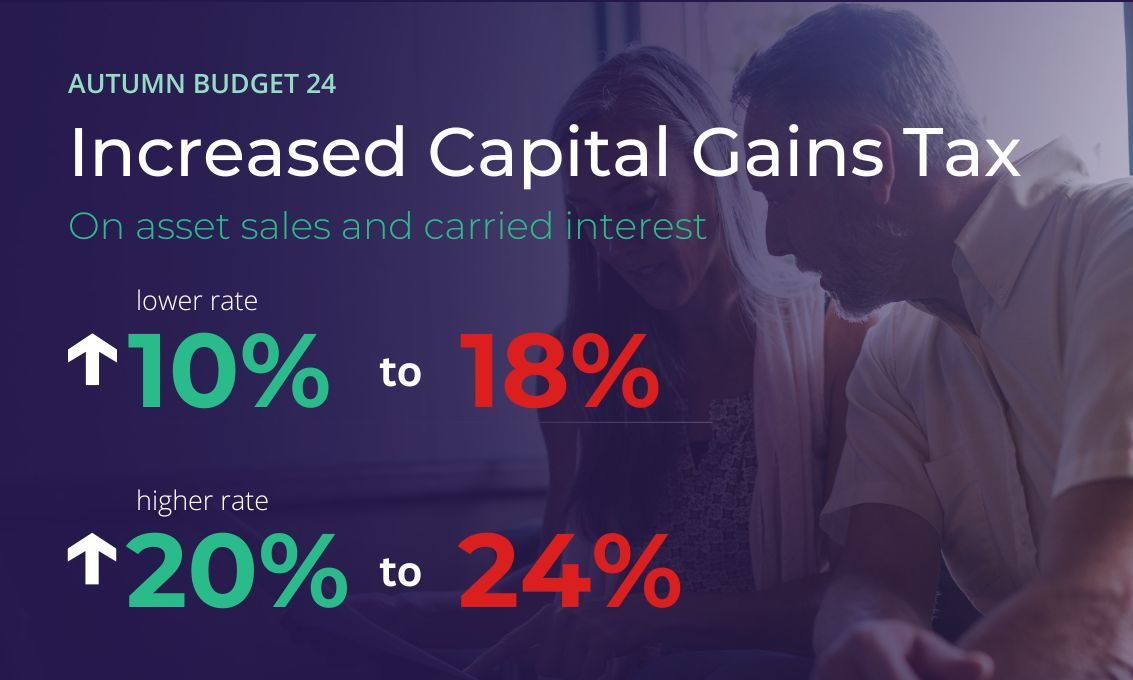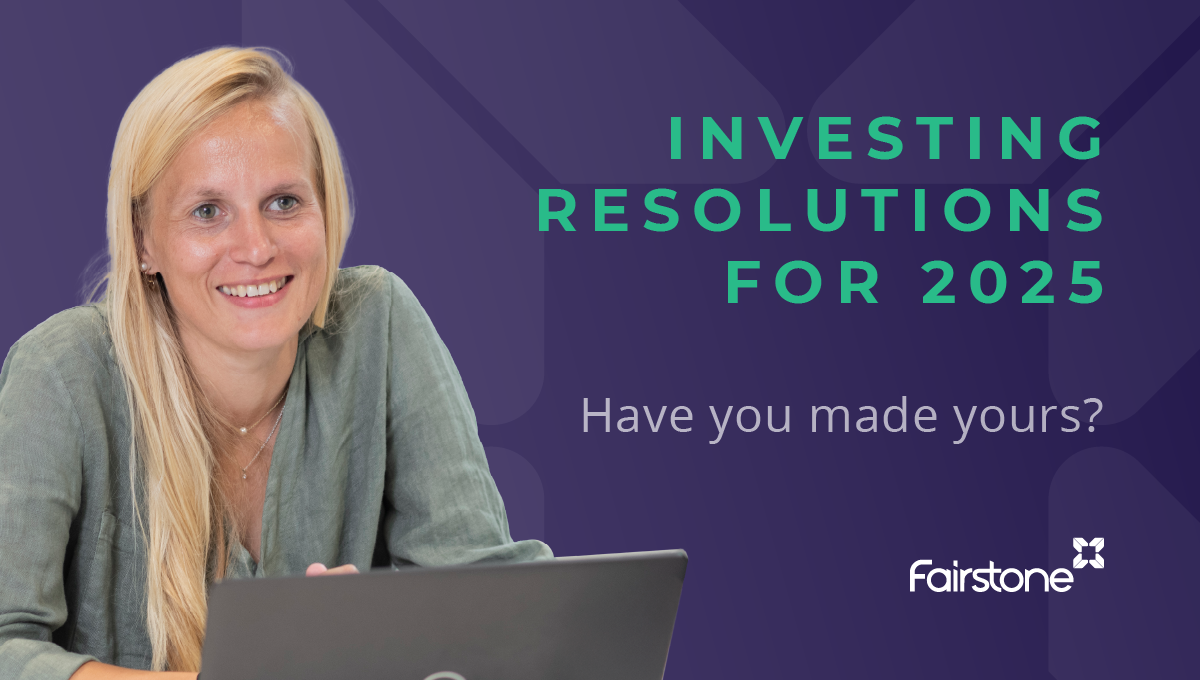
Planning & protection

I’ve always believed in the power of New Year’s resolutions. Over the years, I’ve seen first hand how sticking to well informed financial commitments can transform people’s lives, not only in terms of wealth, but in their overall sense of security and confidence. Building a stronger portfolio is similar to many other long-term goals, like buying a home or securing a comfortable retirement, those who embrace financial resolutions consistently see progress in their portfolio and a strong foundation for their future.
By committing to a few smart resolutions and sticking with them, you’ll set a strong foundation for the years to come. Whether you’re just starting your investment journey or looking to refine your approach, these are the steps that I think investors should take to help take control of your finances and move closer to the life you want.
Consistency is one of the most powerful habits in investing. By contributing to your portfolio regularly, even when markets are unpredictable, you can benefit from pound cost averaging. This strategy helps smooth out the ups and downs of the market over time.
Make it easy by automating your contributions. Whether you’re investing large sums or starting small, the key is building the habit and staying consistent. And if you have any unused cash in your portfolio, ensure it’s put to work in your chosen assets, so every penny contributes to your financial growth.
It’s easy to get frustrated when markets fluctuate. Maybe you’ve seen a share price dip and second-guessed your decisions, but that’s usually just temporary sentiment at work. Even solid companies can see their stock values drop due to short-term market conditions or broader trends.
The key is focusing on the bigger picture. History shows that markets recover, and patience often turns perceived losses into gains. The real secret to success? It’s not about timing the market but spending time in it. Stick to your strategy, trust the fundamentals of your investments, and resist the urge to react to every market hiccup.
Many UK investors stick close to home, but the global market offers so much more. Did you know that the UK makes up just 4% of the world’s equity markets? That leaves a massive 96% of opportunities waiting to be explored.
By diversifying your portfolio beyond the UK, you can tap into differentiated markets like the US, Europe, and even emerging economies. The world is full of possibilities—don’t miss out by keeping all your investments local.
While it’s smart to let your investments grow without constant tinkering, an annual check-in is essential. What worked for you a few years ago might not align with your goals or the current economic environment today. Inflation, global trends, and personal milestones all play a role in shaping your financial needs.
Take time to review your investment portfolio management and make sure it’s on track. You might consider rebalancing your assets, exploring fee-free platforms, or even switching to a managed portfolio for professional guidance. Staying proactive ensures your investments remain aligned with your evolving goals.
A well-rounded investment approach starts with gathering insights from a variety of trusted sources, whether website or news outlets. While personal research is essential, broadening your network to include industry leaders and financial experts can give you a clearer, more comprehensive understanding of the markets. Many professionals regularly share valuable advice on market trends, investment strategies, and portfolio management—resources that can help refine your own decisions.
At the same time, it’s crucial to challenge your assumptions by seeking out alternative views. Avoid the trap of “confirmation bias,” where you only focus on information that supports your existing beliefs. Instead, leverage a diverse range of insights to ensure your portfolio remains balanced and forward-looking.
For those seeking a deeper level of expertise, working with a wealth manager can be a natural next step. Professional advisers provide tailored strategies, objective advice, and access to advanced tools that can enhance your financial plan. By combining your independent research with expert guidance, you can optimise your portfolio for long-term success and greater peace of mind.
Market fluctuations are normal, and even strong companies can experience temporary price dips. Focus on the bigger picture:
The UK represents just 4% of the global equity market, leaving 96% of opportunities in regions like the US, Europe, and emerging markets. Diversifying globally can:
Consistency in investing allows you to benefit from pound cost averaging, which smooths out market volatility over time.
An annual review helps ensure your investments align with your financial goals and the current market environment. Consider:
________________________________________
Emerging markets can offer significant growth opportunities but also come with higher risks. Diversify wisely and consider these investments as part of a balanced portfolio.
To combat inflation:
Explore ESG (Environmental, Social, and Governance) investments to align your portfolio with your values. Many platforms now offer tools to screen for sustainable or ethical investment options.
It’s never too late to begin. Even small contributions over time can significantly grow thanks to compounding. The key is to start where you are and remain consistent.
While it’s possible to manage your investments independently, a financial adviser can offer:
The habits you build today will shape your financial future. By diversifying globally, investing consistently, and focusing on the long term, you’ll set yourself up for success. Take the time to review and refresh your portfolio so that it’s working as hard as you are.
Start now, and 2025 could be your most rewarding financial year yet.
| Match me to an adviser | Subscribe to receive updates |
THIS ARTICLE DOES NOT CONSTITUTE TAX OR LEGAL ADVICE AND SHOULD NOT BE RELIED UPON AS SUCH. TAX TREATMENT DEPENDS ON THE INDIVIDUAL CIRCUMSTANCES OF EACH CLIENT AND MAY BE SUBJECT TO CHANGE IN THE FUTURE. FOR GUIDANCE, SEEK PROFESSIONAL ADVICE.
A PENSION IS A LONG-TERM INVESTMENT NOT NORMALLY ACCESSIBLE UNTIL AGE 55 (57 FROM APRIL 2028 UNLESS THE PLAN HAS A PROTECTED PENSION AGE).
THE VALUE OF YOUR INVESTMENTS (AND ANY INCOME FROM THEM) CAN GO DOWN AS WELL AS UP, WHICH WOULD HAVE AN IMPACT ON THE LEVEL OF PENSION BENEFITS AVAILABLE.
YOUR PENSION INCOME COULD ALSO BE AFFECTED BY THE INTEREST RATES AT THE TIME YOU TAKE YOUR BENEFITS.